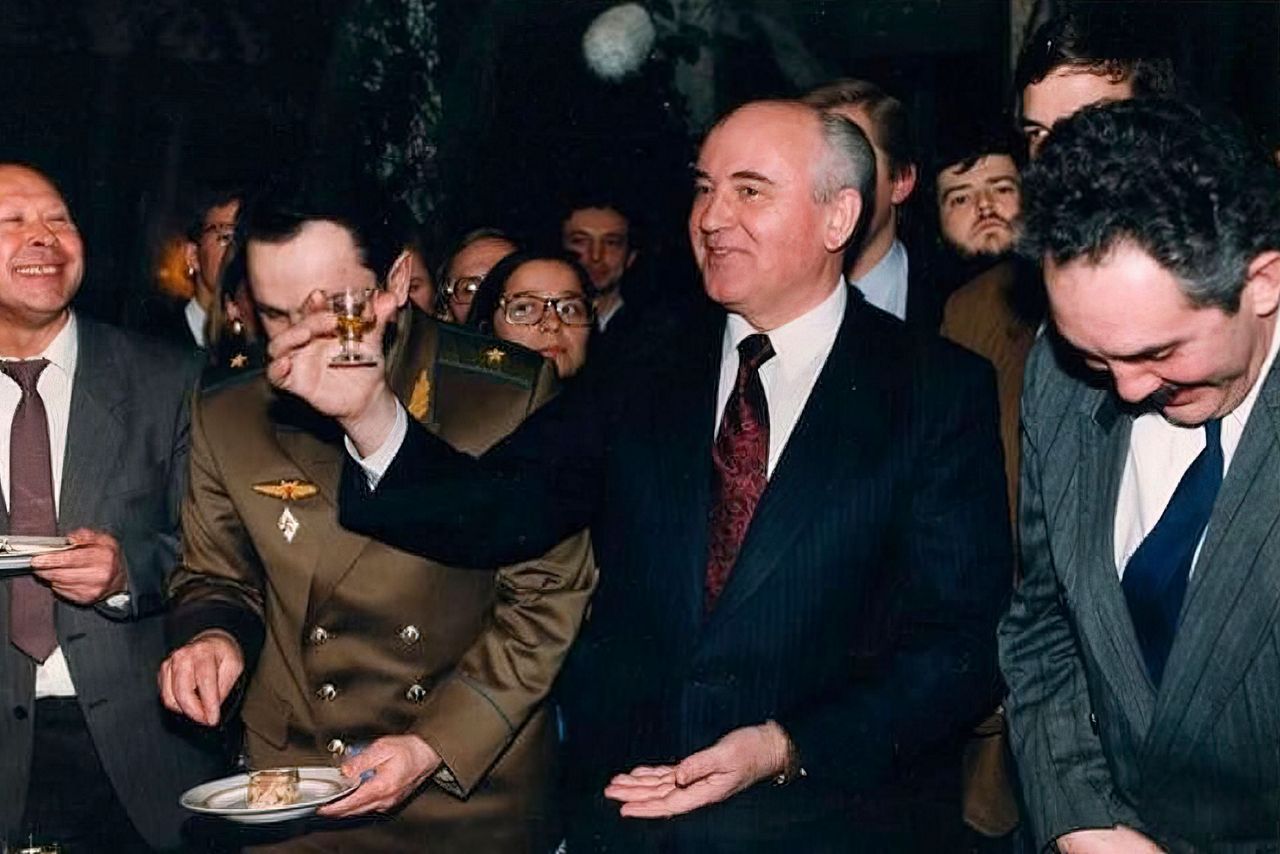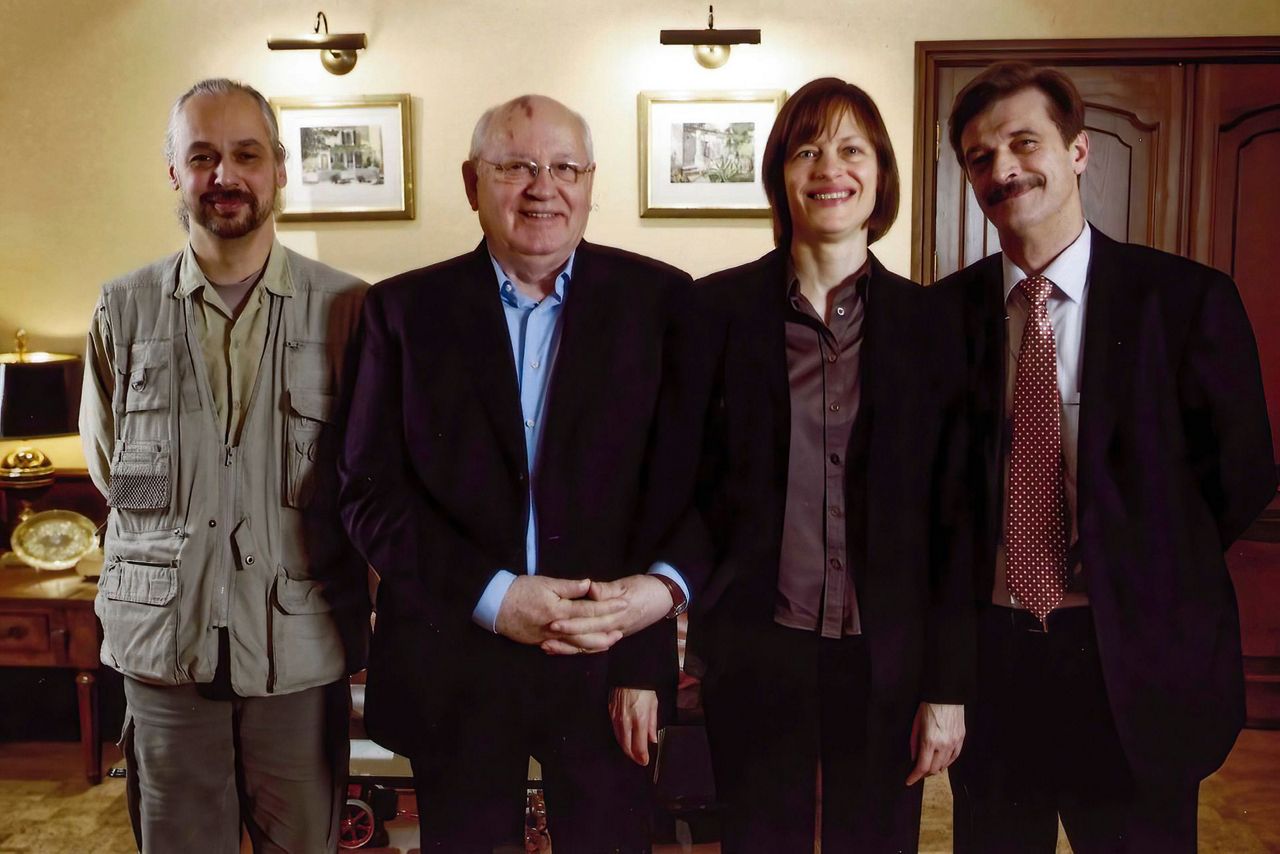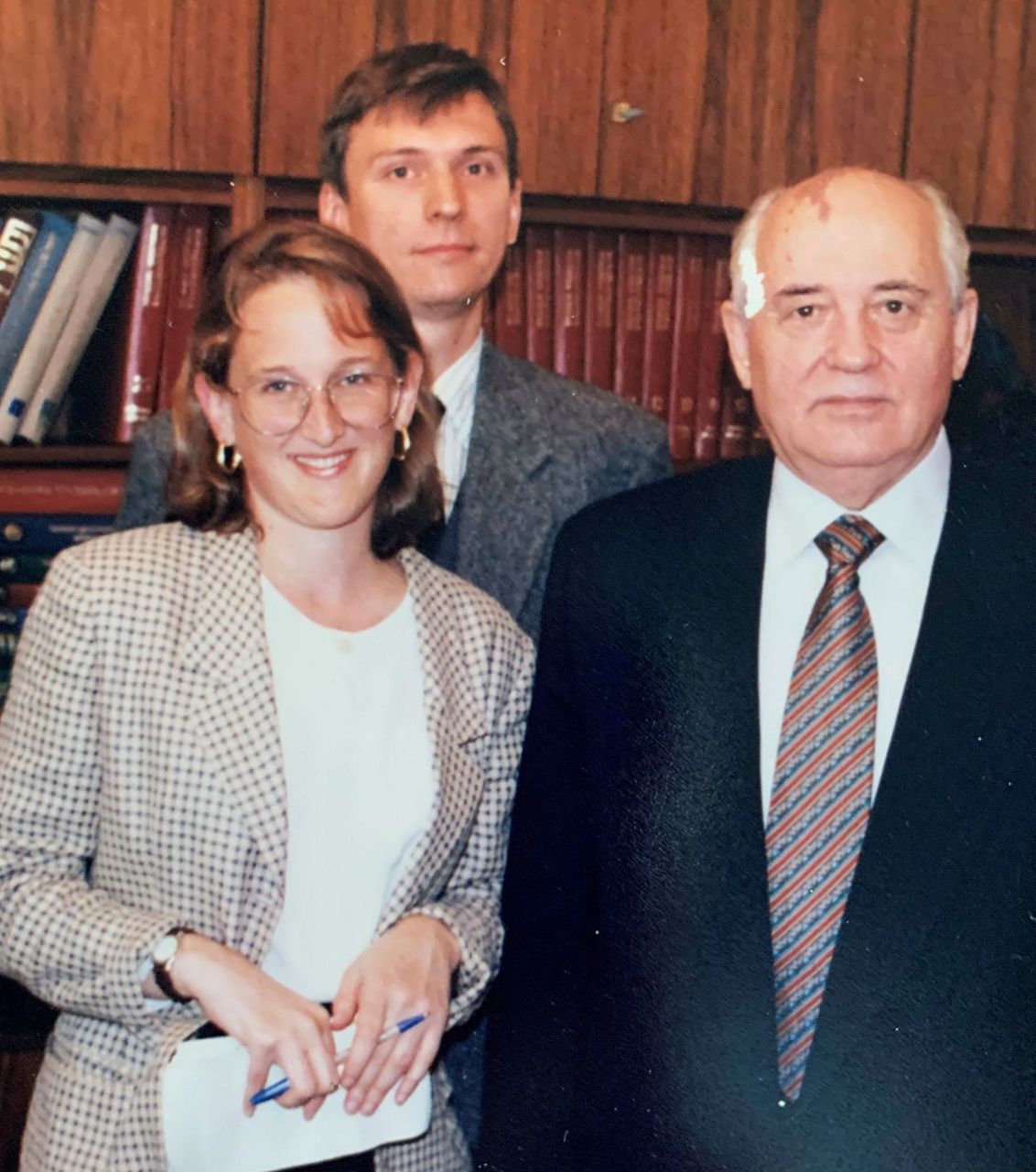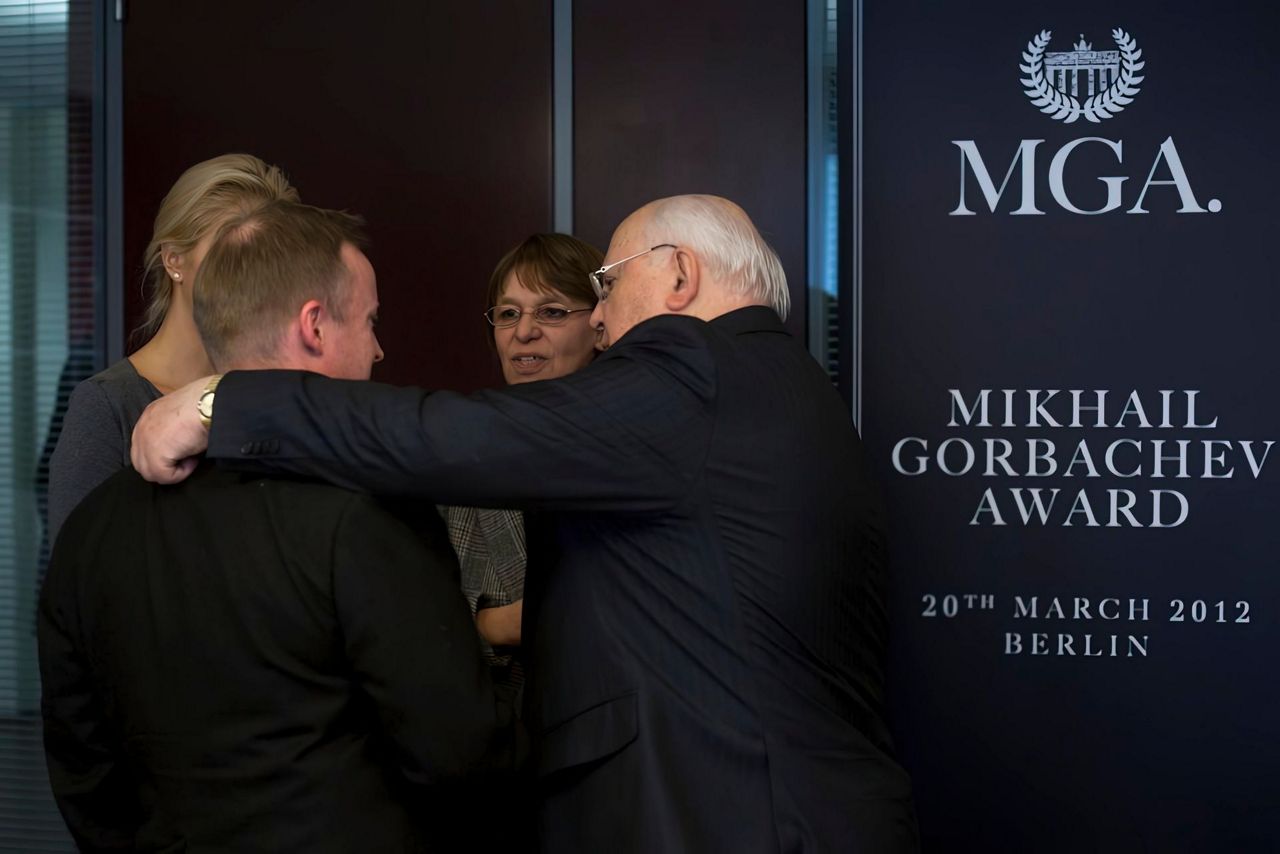When news hit that Mikhail Gorbachev had died at age 91, Associated Press journalists around the world began sharing their “Gorby” stories from covering the last Soviet leader or interviewing him in Russia or abroad in the three decades that followed. They remember his temper and sense of humor, his sharp intellect even in his later years, when he was willing to talk at length about his hopes and his regrets.
That is if you could follow his long, rambling sentences in his southern Russian accent and his annoying tendency to refer to himself in the third person. For some of them, though, it was the warmth of an aging Gorbachev that they remember. The shared tea, the arm around the shoulder. Gorbachev was a man who changed the world, and the AP was there.
___
Gorbachev came to power in 1985 with no less of a goal than to transform the Soviet Union and the lives of his fellow citizens, many still desperately poor. The obstacles he faced were monumental.
For AP correspondents in Moscow at the time, “it was like covering sports,” remembers Andrew Katell. “What was the score? Was the development we were reporting good or bad for Gorbachev, a win or a loss?”
It was hard for reporters in Moscow to get close enough to Gorbachev to ask those questions. When he traveled abroad, however, he was usually eager to press the flesh and talk to the press. So, when Katell was covering Gorbachev’s official trip to Madrid in 1989, he thought his chance had come.
He raised his hand repeatedly at a news conference, but was ignored. Afterward, he rushed the stage and asked the Soviet leader if he could ask one more question. Gorbachev “smiled, said nothing, extended his hand for a shake, then walked away.”
AP correspondent Brian Friedman also got the Gorbachev treatment. In summer 1992, less than a year after the Soviet Union disintegrated, Friedman trailed him as he left the Fourth of July party at the U.S. ambassador’s residence. Shorn of his security detail and big limousine, Gorbachev was carrying his suit coat over his shoulder as he walked back to a simple Volga sedan.
“I tried to politely ask him a question about the upcoming court case the following week over the legacy of the banned Communist Party. I then extended my tape recorder to get his response,” Friedman said. “Gorbachev, the former president of the USSR, looked at me, looked at my tape recorder and said, ‘This we don’t need!’ and knocked my recorder out of my hand to the ground. He then stormed off.”
Friedman had seen a more amiable, if wistful, Gorbachev at a going-away party for his staff on Dec. 26, 1991, the day after his nationally televised address in which he announced his resignation as president.
“He held a small glass of lemon-flavored vodka. Known in his career as a teetotaler and for his anti-alcohol campaigns, Gorbachev said with a twinkle in his eye, ‘You think I can’t do it? Now I can afford to!’ And he then gulped it down.”
It was mostly the amiable Gorbachev who greeted correspondents in his years out of power.
In the early 1990s, he sent out a press release inviting journalists to a news conference at the airport before he embarked on one of his many international speaking tours. Larry Ryckman remembers that most everyone in the AP’s Moscow bureau rolled their eyes, busy with covering the emergence of a new chaotic Russia. But he was game and headed out to the airport. He was one of only a couple of journalists.
“Gorbachev’s wife, Raisa, gave me a look that seemed to be a mix of gratitude that I had bothered to show up and embarrassment at the pitiful turnout,” Ryckman said. “We ended up sitting around a small table in the airport lounge chatting for a few minutes -- with just Gorbachev, his wife and a couple of aides. He didn’t end up saying anything particularly newsworthy, but it’s one of my favorite memories from my time in Moscow.”
During the next few years, Gorbachev built his foundation, a think tank designed to defend his legacy, and he toured the world, often drawing huge enthusiastic crowds. At home he struggled to stay relevant.
For journalists working in Moscow, Gorbachev was of interest mainly as the anniversaries of the 1991 pivotal events rolled around. But even in August 1996, only five years after a failed coup mounted by a group of communist hardliners, the AP story quoted only two sentences from an interview with him.
“These five years have proved all that I said — that the breakup of the Soviet Union would bring grave calamity for Russia and all the other republics,” Gorbachev said. “I find myself in the role of a Cassandra.”
His long-shot, comeback candidacy for the presidency had been crushed earlier that year. Julia Rubin, who interviewed him then, remembers him as genial and friendly, joking with the AP’s television camera operators about getting the angles right. But he was also a little testy about being sidelined politically. “He had strong opinions and still wanted to be part of the conversation” about where the countries of the former Soviet Union were headed.
He also wanted his voice heard on the dangers posed by the steadily deteriorating relations between Russia and the U.S.
When Barack Obama was elected in 2008, Russians called him the American Gorbachev because of his promises to bring change. Interested to hear what the real Gorbachev had to say, the AP sat down with him one evening at his foundation. And, yes, he agreed that America was ready for its own perestroika.
What interested him more was whether Obama would “muster his courage” to ease tensions with the Kremlin. Gorbachev was proud of his part in bringing an end to the Cold War and the nuclear arms race, and wanted that legacy preserved. At the end of the interview, Lynn Berry remembers that he mused about the possibility of a feature film to tell his story to coming generations. Perhaps he could be played by Leonardo DiCaprio?
“When we posed for a photograph before leaving, Gorbachev linked his arm around mine,” Berry said. “It was awkward and the picture shows my arm hanging limply by my side. Later, though, I really wished I had returned the kind gesture."
While largely ignored in Russia, Gorbachev remained a figure of historical importance to the rest of the world. When he traveled to Berlin in 2011, David Rising leapt at the opportunity to interview him.
Gorbachev, then 80, talked animatedly about the Arab Spring demonstrations in Egypt following the ouster of Hosni Mubarak. In a break with the Kremlin, he said the demonstrations seeking democratic reforms in Egypt and across the region were of “vital importance.” At the same time, he lamented the backsliding of democracy in his own country under Vladimir Putin.
“As genial as he was thoughtful, after our formal interview was over Gorbachev seemed in no hurry to wrap up, putting his arm warmly over my shoulder and continued to share his thoughts on the end of the Cold War and the current state of democracy in Russia,” Rising said.
Rising was struck that he was speaking to the last Soviet leader in an office in former East Berlin not far from where President Ronald Reagan in 1987 stood on the other side of the Berlin Wall and implored him to “tear down this wall.”
“The privilege of talking with the man whose policies of perestroika and glasnost helped lead to the fall of that wall only two years later is one I’ll never forget,” Rising said.
The AP caught up with Gorbachev again in February 2014 in the city of Sharjah, in the United Arab Emirates, where he was speaking at a conference. For Adam Schreck, as for Rising, this was a chance to talk to a man who had “earned a place solidly in the history books.”
The Moscow-friendly president of Ukraine had just been ousted after months of protests, which Gorbachev attributed to the president’s failure “to act democratically.” Over tea served with lemon in a darkened and ornate hotel room, Gorbachev shared his fears for Ukraine. He said the situation was “a real mess” and it was “important not to tear it apart.”
Schreck remembers thinking at the time that Gorbachev was hinting at something deeper, “that Ukraine’s future as an independent, democratic state might not be smooth. I’d return to those words on my way to Kyiv to cover the war earlier this year.”
Within days of the interview, Russia seized control of the Crimean Peninsula, helping lay the groundwork for the current conflict.
In December 2016, the 25th anniversary of the Soviet collapse, Gorbachev spoke bitterly of the West's failure to provide vital aid in the 1990s, calling it a wasted chance to build a safer world. In a lengthy interview with the AP in Moscow, he made an urgent plea for Russia and the U.S. to work together. “Together, they could lead the world to a new path.”
By the time Russia invaded Ukraine in February of this year, Gorbachev's health was too poor for him to tell the world what he thought.
Copyright 2022 The Associated Press. All rights reserved. This material may not be published, broadcast, rewritten or redistributed without permission.







